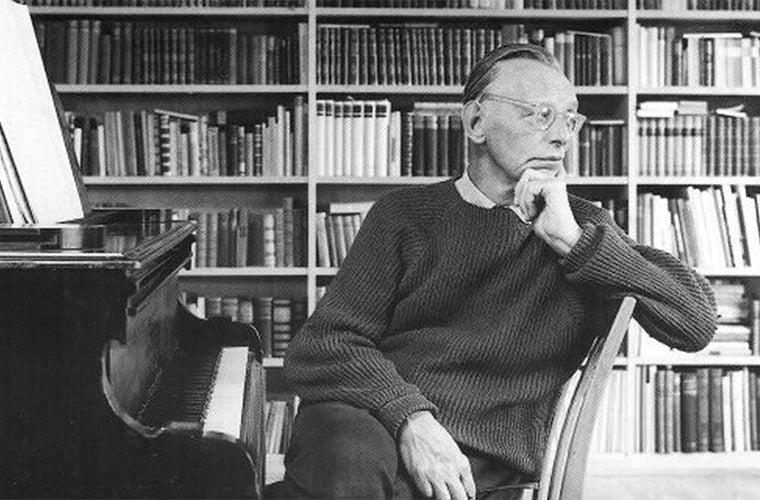
Carl Orff
1895 - 1982
Biography
German composer Carl Orff (1895-1982) was born and educated in Munich. He became a conductor in various opera houses in the city, as he was developing his unique style of composition. His first major success, Carmina Burana (1937), illustrates his dedication to the expression of text with music, and rhythm with dance. Carmina Burana, along with his operas Der Mond (The Moon, 1938) and Die Kluge (The Clever Woman, 1942) established his international reputation as a composer. Larger stage works, including Antigonae (1947/48) and Oedipus Der Tyrann (1957/58), add a variety of speech effects to the chorus and orchestra for expressive purposes. Orff’s entire musical output is characterized by strong rhythms derived from rich text material and their interplay with melody.
Pedagogical Work
Orff’s pedagogical work is directly related to his artistic compositions. The exploration of melody and rhythm is addressed through singing, playing percussion instruments, speech, and movement. The approach to teaching music to children is an open-ended one, relying on improvisation and the children’s imaginations to create musical ideas. The Orff approach is now used widely in the United States, Canada and many other areas of the world.
Orff’s Schulwerk (Schoolwork) was first developed in the 1920s in collaboration with colleague Dorothee Gunther at the Guntherschule in Munich. The school trained young adult women in elemental music and dance. As music director, Orff was able to realize his ideas of improvised music played on drums, rattles, pitched percussion instruments and recorders. Gunild Keetman, an outstanding Guntherschule student, became Orff’s collaborator in developing the elemental style of music. In 1928, Keetman assumed leadership of instrumental activity, teaching and composing music to accompany the Gunther Dance Troupe, which toured Europe to critical acclaim. The school was closed due to political pressure in 1944 and destroyed by bombing in 1945.
After World War II, the Schulwerk was recast for children through a series of broadcasts on Bavarian radio in 1948. Selected repertoire from the broadcasts, composed by Orff and Keetman, were published as the five volumes (1950-54) of Orff-Schulwerk: Musik fur Kinder (Music for Children) and a sixth, Paralipomena in 1966.
In 1949, Schulwerk teacher training began at the Mozarteum in Salzburg, Austria. In 1961, the Orff Institute was established as a center for teacher training and classes for children (a dedicated building opened in 1963). The Orff Institute also serves as an information center for practitioners worldwide who subscribe to Orff and Keetman’s views of elemental music and movement education. Currently there are Orff Schulwerk associations in 29 countries, with international interest and activity continuing to grow and profoundly influence pedagogical practice in music and movement.